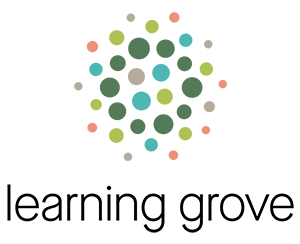By Amy Atkins
Thornwilde Elementary School
How long has it been since you’ve stepped foot in an elementary classroom?
If it’s been awhile, it’s quite possible you may not even recognize it.
Picture this — a small group of students discusses the possible theme of a common book they are reading. Another small group of students works individually on tablets to practice needed skills and then records their progress in a notebook. Scattered around the room is another handful of students working intently on their latest piece of writing. Some students are cozied up in little nooks around the room immersed in various books of their choice, stopping every now and then to jot down their thoughts. Across the room, one student meets with the teacher to talk about how he can improve based on his most recent test score.
Now think back to your own elementary school days. Is this experience similar?
Chances are that your memories are very different. The desks may have been set up in rows. Your teacher probably stood at the front of the room teaching a lesson while you sat in your seat and listened. Occasionally, you might have been called back with a small group of students to do some reading with the teacher. You probably completed workbook pages — sometimes by yourself and sometimes as a whole class as you followed along with the teacher on the overhead projector. (Remember those awful smudges?) And when the teacher had finished her lessons, she gave you a test to see just how much of it you could remember.

Amy Atkins
So why is school so vastly different today than it was when we were in school? The answer is actually very simple: because the world we live in now is so vastly different as well.
One of the hardest things about teaching is having to prepare students for jobs that don’t yet even exist. But no matter what those jobs end up being, there are a few things we know for sure. Employers are looking for candidates who demonstrate leadership, not necessarily to lead others, but themselves. They want team players, problem solvers, goal setters, and critical thinkers who have the ability to communicate, persevere, and wonder. So how do we even begin the immense task of developing those qualities and skills within our students?
Well, we start in kindergarten.
Rather than being the “sage on the stage,” the role of the elementary teacher has shifted to be the “guide on the side.”
We don’t always deliver the knowledge to our students, we ask them intentional questions and design meaningful tasks to help students access knowledge themselves. Instead of setting our own goals for students, we help them set their own goals and then support their plans to achieve them. We guide students to develop and attempt their own solutions, instead of telling them how to solve a problem. We let students make mistakes, rather than catching them before they fall. We allow kids to talk to each other about their learning to build communication skills and to view others’ perspectives. We also confer with students individually about their learning to help them improve. We give students choices and allow them to be decision makers. In essence, we invite them to take ownership of their learning. Out of the two classroom scenarios from before, which do you think is conducive to developing students who own their learning?
So while the elementary years seem a bit early to start preparing students for the world beyond high school or college, it really isn’t. We are the foundation builders. We provide appropriate opportunities for students be an active part in their learning.
And then we step out of their way and watch them become leaders.
Amy Atkins is entering her 19th year in education. She works for Boone County Schools as an Instructional Coach at Thornwilde Elementary. She is also a former co-director of the Northern Kentucky Writing Project.



















